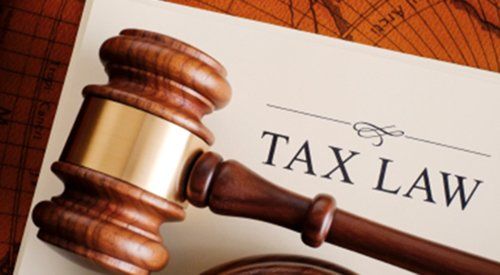IRS Practice and Procedure News Briefs for July 2021

LATE-FILING PENALTIES – Lindsay v. U.S., Case No. 20-50994 (5th Cir. 2021)
Why this Case is Important: Taxpayers often believe that once they give a third party authority to file their tax return, they have fulfilled their obligation to file their return on time and can avoid being penalized for any late filing that is the third party’s fault. That is not the case.
Facts: In Lindsay, the taxpayer was incarcerated. He signed a power of attorney authorizing his accountant to manage his affairs during his incarceration, including filing his tax returns. Between 2012 and 2015, the attorney assured the taxpayer that his returns were being filed on time. Unfortunately for the taxpayer, the attorney never filed those returns and embezzled hundreds of thousands of dollars from the taxpayer. When the taxpayer eventually realized this, he filed his past-due returns. The IRS assessed over $425,000 in late-filing penalties. The taxpayer paid the penalties and filed suit in District Court requesting that the penalties be waived and refunded to him. The District Court found in favor of the IRS and the taxpayer appealed.
Law and Conclusion: Under Section 6651(a)(1) of the Internal Revenue Code, taxpayers are subject to penalties for failing to file returns on time unless the failure was due to reasonable cause and not willful neglect. Over time, the penalty can grow to as high as 25% of the unpaid tax due with the return. To demonstrate that reasonable cause exists for failure to timely file a return, an individual must demonstrate that he or she exercised ordinary business care and prudence but was unable to file the return on time due to circumstances outside of his or her control. While taxpayers often argue that they relied on a third party to file their return on time and that third party was to blame for the non-filing, the Supreme Court rejected this argument in the case of United States v. Boyle. In that case, the Supreme Court held that a taxpayer’s duty to file a tax return on time cannot be delegated, and that unlike cases where taxpayers rely on tax advice from experts to their detriment, occasionally warranting penalty abatement, “one does not have to be a tax expert to know that tax returns have fixed filing dates…” Relying on the holding in Boyle, the Appeals Court rejected the taxpayer’s argument and upheld the District Court’s decision in favor of the IRS.
IRS COLLECTION BEYOND STATUTE OF LIMITATIONS – Dean v. U.S., Case No. 20-14421 (11th. Cir. 2021)
Why this Case is Important: While the IRS generally has ten years from the date a return is filed to collect unpaid taxes, as this case demonstrates, in certain circumstances, the IRS is permitted to continue collecting even once that ten-year window has expired.
Facts: In Dean, the taxpayer owed the IRS over $2 million with respect to his 1997 through 2005 tax returns. The liabilities were assessed in 2007, meaning that the IRS generally had until sometime in 2017 to collect the liabilities. The IRS filed a tax lien against the taxpayer and, in 2013, began levying 100% of the taxpayer’s Social Security benefits. In 2017, with the statute of limitations on IRS collections expiring, the IRS released its tax lien and abated the assessments against the taxpayer. However, it continued to levy the taxpayer’s Social Security benefits. Believing that the levy should have been released, the taxpayer filed suit in District Court seeking a refund of $64,000 that the IRS had levied following the expiration of the statute of limitations. When the District Court found in favor of the IRS, the taxpayer appealed.
Law and Analysis: Under Section 6501(a)(1) of the Internal Revenue Code, the IRS has ten years from the date a tax liability is assessed to collect it, though that ten-year period can be extended in certain circumstances. Treasury Regulations make clear that a levy served after this ten-year period expires must be released, and that a continuing levy on salary or wages must be released when the ten-year period expires. However, those regulations also state that “a levy on a fixed and determinable right to payment, which right includes payments to be made after the period of limitations expires, does not become unenforceable upon the expiration of the period of limitations and will not be released under this condition unless the liability is satisfied.” As the Appeals Court explained, once individuals start collecting Social Security benefits, they have a fixed and determinable right to payment of their entire benefit – payment of the benefit is guaranteed and the amount to be paid is fixed. That being the case, when the IRS issued its levy on the taxpayer’s Social Security, it levied his fixed and determinable right to payment of the entire benefit, which was to be paid in monthly installments. Because this levy of his entire benefit was issued prior to the collection statute of limitations expiring, the IRS was not required to release the levy when the statute did expire. Therefore, the Appeals Court upheld the District Court’s decision and ruled in favor of the IRS.
If you would like more details about these cases, please contact me at 312-888-4113 or jnesser@lavellelaw.com.
More News & Resources
Lavelle Law News and Events












